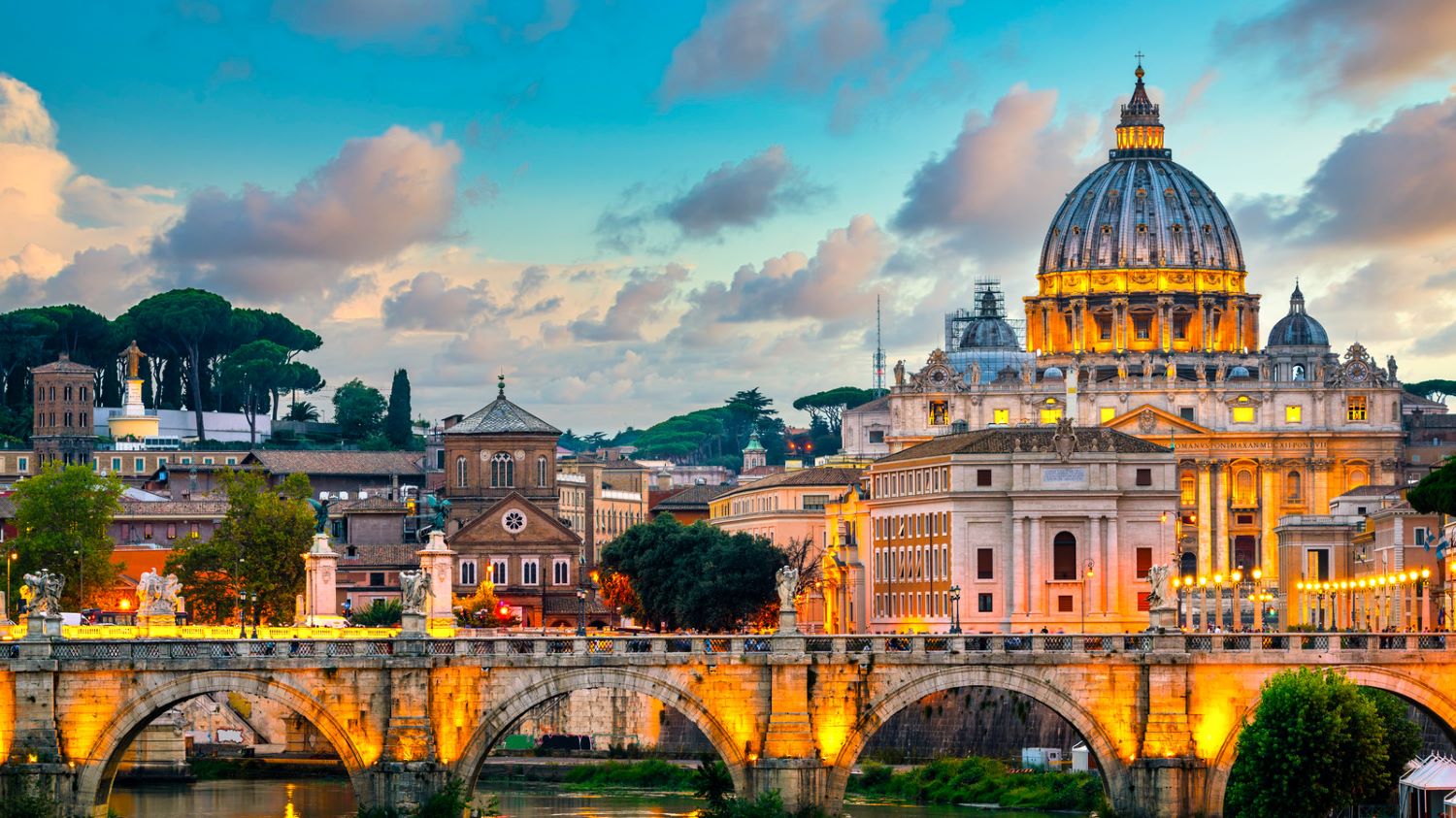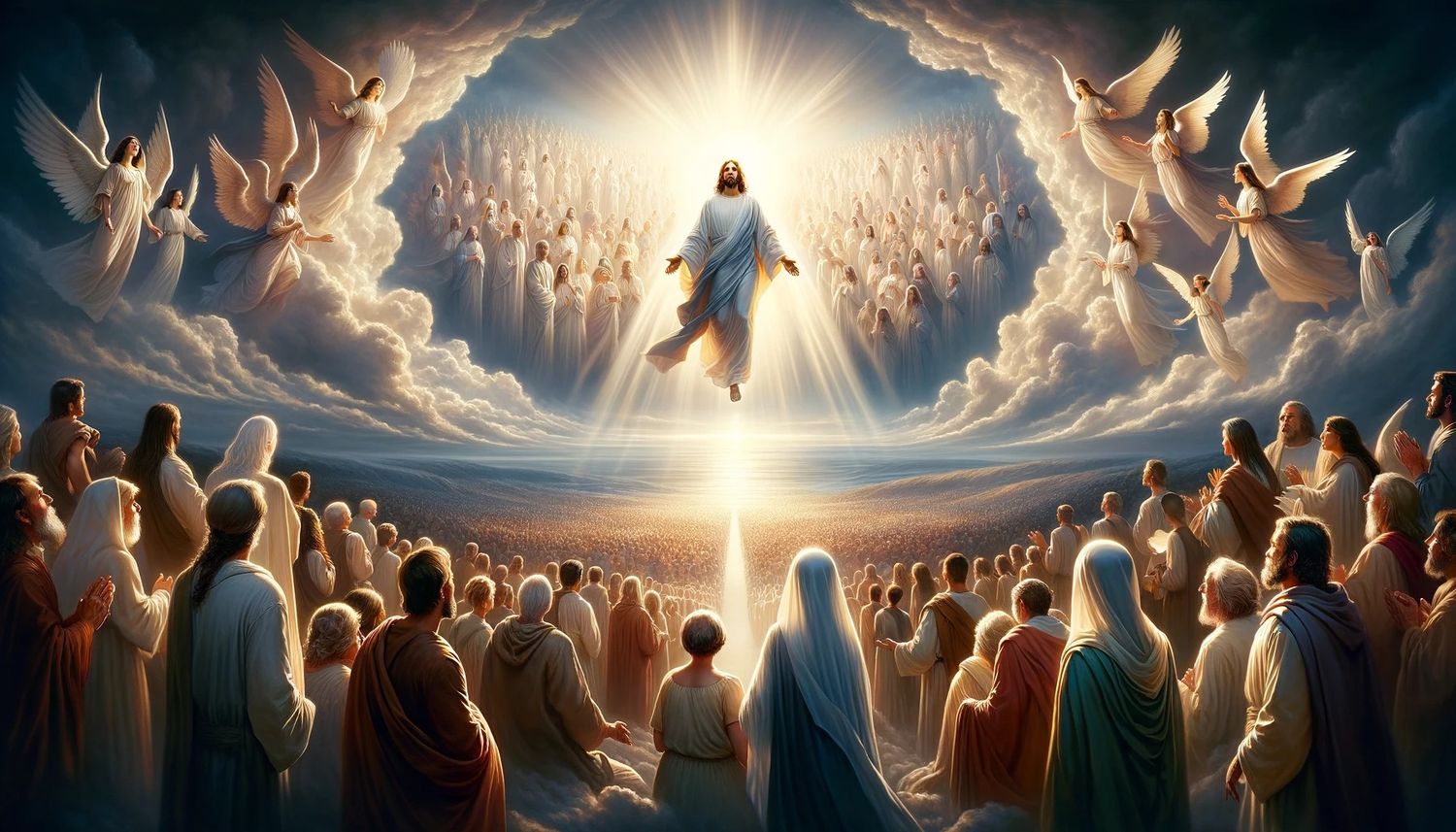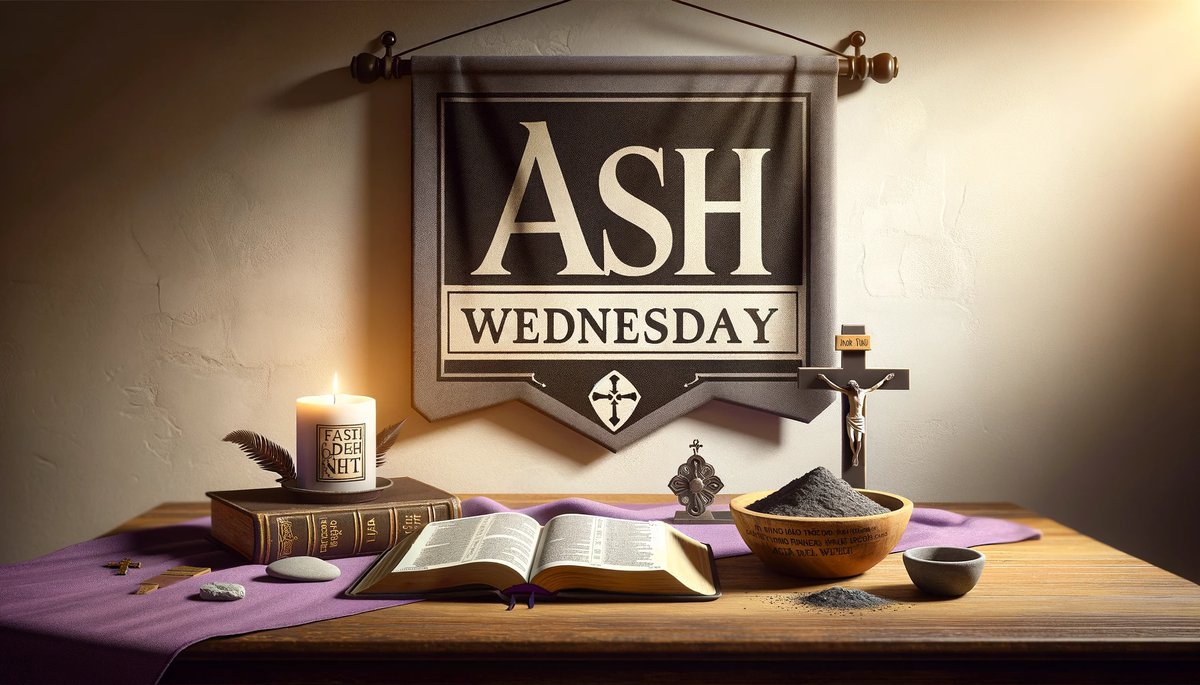Home>Theology and Spirituality>What Is World Communion Day


Theology and Spirituality
What Is World Communion Day
Published: February 25, 2024
Peter Smith, Editorial Director at Christian.net, combines deep insights into faith, politics, and culture to lead content creation that resonates widely. Awarded for his contributions to religious discourse, he previously headed a major organization for religious communicators, enhancing dialogue on faith's societal impacts.
Celebrate World Communion Day and explore its significance in theology and spirituality. Join the global community in honoring this sacred tradition.
(Many of the links in this article redirect to a specific reviewed product. Your purchase of these products through affiliate links helps to generate commission for Christian.net, at no extra cost. Learn more)
Table of Contents
Introduction
World Communion Day is a significant event celebrated by Christians around the globe. It is a time when believers come together to commemorate the act of Holy Communion, also known as the Eucharist or the Lord's Supper. This observance serves as a powerful reminder of the unity and interconnectedness of the global Christian community, transcending denominational, cultural, and geographical boundaries.
The origins of World Communion Day can be traced back to the early 20th century, when the concept of ecumenism, or the promotion of unity among different Christian denominations, began to gain traction. The idea of setting aside a specific day to celebrate the shared act of partaking in the bread and wine, symbolizing the body and blood of Christ, emerged as a way to emphasize the common bond that unites all followers of Jesus Christ.
This annual observance, typically held on the first Sunday of October, serves as a poignant reminder of the universal nature of the Christian faith. It encourages believers to reflect on the fundamental principles of love, compassion, and fellowship that underpin their shared spiritual journey. World Communion Day also provides an opportunity for Christians to express solidarity with their brothers and sisters in Christ across the world, fostering a sense of interconnectedness and mutual support within the global faith community.
As the world becomes increasingly interconnected, World Communion Day takes on added significance, serving as a powerful symbol of unity in the face of diversity. It transcends cultural and linguistic barriers, emphasizing the common bond that unites Christians of diverse backgrounds and traditions. This celebration underscores the belief that, despite differences in worship styles, theological interpretations, and ecclesiastical structures, all Christians are part of a larger, unified body of believers.
In the subsequent sections, we will delve deeper into the history, significance, and observance of World Communion Day, exploring its impact on different Christian traditions and the broader global community of faith. Through this exploration, we aim to gain a deeper understanding of the profound meaning and relevance of World Communion Day in the contemporary world.
History of World Communion Day
The origins of World Communion Day can be traced back to the early 20th century, a time marked by growing interest in ecumenism, the movement promoting unity among Christian denominations. The idea of a dedicated day to celebrate the shared act of partaking in the bread and wine, symbolizing the body and blood of Christ, emerged as a way to emphasize the common bond that unites all followers of Jesus Christ.
The inception of World Communion Day can be attributed to Dr. Hugh Thomson Kerr, a Presbyterian minister from Pittsburgh, Pennsylvania. In 1933, Dr. Kerr proposed the concept of a special day for celebrating Holy Communion that transcended denominational boundaries. His vision was to foster a sense of unity and interconnectedness among Christians worldwide, regardless of their specific theological or doctrinal differences.
The first official observance of World Communion Day took place on October 4, 1936, at Shadyside Presbyterian Church in Pittsburgh. This marked the beginning of an annual tradition that would eventually spread to churches and Christian communities across the globe.
The timing of World Communion Day, typically celebrated on the first Sunday of October, holds significance in its own right. This date was intentionally chosen to coincide with the commemoration of the Feast of St. Francis of Assisi, a revered figure known for his dedication to peace, love, and harmony. By aligning World Communion Day with this auspicious occasion, its founders sought to underscore the universal principles of compassion, unity, and goodwill that lie at the heart of the Christian faith.
Over the years, World Communion Day has evolved into a cherished tradition, embraced by various Christian denominations and celebrated in diverse cultural contexts. It has become a symbol of the global Christian community's commitment to unity, mutual respect, and solidarity, transcending geographical, linguistic, and cultural barriers.
As World Communion Day continues to be observed annually, its rich history serves as a testament to the enduring spirit of ecumenism and the unifying power of the Christian faith. This celebration stands as a testament to the enduring vision of Dr. Hugh Thomson Kerr and the countless individuals who have embraced the spirit of unity and fellowship that defines World Communion Day.
Significance of World Communion Day
World Communion Day holds profound significance within the Christian faith, serving as a powerful symbol of unity, inclusivity, and shared spiritual heritage. This observance transcends denominational boundaries and cultural differences, emphasizing the fundamental principles that bind Christians together as a global community of faith.
At its core, World Communion Day underscores the universal nature of the Christian faith. It serves as a poignant reminder that, despite diverse theological interpretations and worship practices, believers around the world are united by their shared devotion to Jesus Christ. This celebration highlights the essential teachings of love, compassion, and fellowship that form the bedrock of Christian belief, emphasizing the common ground that unites individuals from diverse cultural, linguistic, and geographical backgrounds.
Moreover, World Communion Day promotes the spirit of ecumenism, fostering dialogue, understanding, and cooperation among different Christian traditions. It encourages believers to look beyond doctrinal differences and embrace the overarching message of Christ's love and redemption. By coming together to partake in the Eucharist, Christians reaffirm their commitment to mutual respect, reconciliation, and the pursuit of common goals, transcending historical divisions and theological disagreements.
This observance also carries profound implications for the broader global community. In an increasingly interconnected world, World Communion Day serves as a powerful symbol of solidarity and cooperation across borders. It emphasizes the shared values of peace, justice, and compassion that resonate with people of all faiths and backgrounds, offering a message of hope and unity in the face of cultural, political, and social divisions.
Furthermore, World Communion Day provides an opportunity for introspection and self-examination within the Christian community. It prompts believers to reflect on their individual roles in promoting unity, understanding, and empathy, both within their local congregations and on a global scale. This introspective aspect of the observance encourages a renewed commitment to embodying the teachings of Christ in everyday life, fostering a spirit of inclusivity, generosity, and goodwill toward all.
In essence, World Communion Day stands as a testament to the enduring values of unity, love, and shared humanity that lie at the heart of the Christian faith. It serves as a beacon of hope, inspiring believers to embrace their interconnectedness and work towards a world characterized by harmony, understanding, and mutual respect. This observance continues to hold profound significance, reminding Christians of their collective responsibility to uphold the principles of compassion, reconciliation, and unity in an ever-changing world.
How World Communion Day is Celebrated
World Communion Day is celebrated in diverse and meaningful ways across Christian communities worldwide. This observance typically involves special church services, communal gatherings, and symbolic acts that emphasize the universal nature of the Christian faith and the shared experience of partaking in the Eucharist.
One of the central elements of World Communion Day celebrations is the participation in Holy Communion, where believers partake in the consecrated bread and wine, symbolizing the body and blood of Christ. During this sacred ritual, Christians reflect on the sacrificial love of Jesus and the profound spiritual nourishment derived from this act of remembrance. The Eucharist serves as a unifying force, bringing together individuals from various denominations and cultural backgrounds in a shared expression of faith and devotion.
In many churches, World Communion Day is marked by special worship services that emphasize the global scope of the Christian community. These services often incorporate elements from different cultural traditions, such as music, prayers, and readings in multiple languages, underscoring the diversity and richness of the worldwide body of Christ. The use of diverse cultural expressions during these services serves as a powerful reminder of the inclusive nature of the Christian faith, transcending linguistic and ethnic boundaries.
Additionally, World Communion Day provides an opportunity for interfaith dialogue and cooperation, as some communities extend invitations to members of other religious traditions to join in the observance. This inclusive approach fosters understanding and mutual respect, promoting a spirit of unity and cooperation among people of different faith backgrounds.
Beyond the confines of church services, World Communion Day often inspires charitable initiatives and acts of service aimed at addressing global humanitarian needs. Many Christian organizations use this occasion to raise awareness about social justice issues, advocate for peace and reconciliation, and support communities in need around the world. These efforts reflect the commitment of Christians to embody the principles of compassion and solidarity, extending the spirit of communion beyond the confines of their local congregations.
In essence, the celebration of World Communion Day is a testament to the enduring values of unity, inclusivity, and shared humanity within the Christian faith. It serves as a powerful reminder of the interconnectedness of believers across the globe and the collective responsibility to promote peace, understanding, and goodwill. Through meaningful rituals, inclusive worship services, and acts of service, Christians come together to honor the universal significance of the Eucharist and reaffirm their commitment to embodying the teachings of Christ in a spirit of love and unity.
Importance of World Communion Day in Different Christian Traditions
World Communion Day holds profound importance in various Christian traditions, serving as a unifying force that transcends denominational differences and cultural diversity. This observance resonates deeply within different branches of Christianity, each embracing the significance of shared communion and the universal principles it embodies.
In the Roman Catholic tradition, World Communion Day underscores the essential belief in the real presence of Christ in the Eucharist. Catholics view the act of partaking in the consecrated bread and wine as a sacred sacrament, symbolizing the intimate union with Christ and the spiritual nourishment derived from this communion. The observance of World Communion Day reaffirms the Catholic Church's commitment to fostering unity and solidarity among believers worldwide, emphasizing the shared bond of faith that transcends geographical and cultural boundaries.
Within the Eastern Orthodox tradition, World Communion Day holds deep spiritual significance, reflecting the ancient roots of the Eucharistic liturgy. Orthodox Christians view the Eucharist as a central aspect of their faith, embodying the mystical presence of Christ and the transformative power of divine grace. The observance of World Communion Day resonates with the Orthodox commitment to upholding the traditions of the early Christian Church, emphasizing the universal nature of the Eucharistic celebration and its role in uniting believers across diverse cultural and linguistic contexts.
In Protestant denominations, World Communion Day serves as a powerful symbol of ecumenism and the shared heritage of the Christian faith. This observance holds particular importance in churches that emphasize the priesthood of all believers and the diversity of worship practices. For Protestant communities, World Communion Day highlights the inclusive nature of the Eucharist, transcending denominational differences and embracing the diversity of spiritual expressions within the global Christian community.
In Anglican and Episcopal traditions, World Communion Day reflects the commitment to unity and common prayer within the worldwide Anglican Communion. This observance underscores the interconnectedness of Anglican churches across different regions and cultural contexts, emphasizing the shared faith in Christ and the significance of the Eucharist as a unifying sacrament. World Communion Day serves as a poignant reminder of the Anglican Communion's dedication to fostering dialogue, understanding, and cooperation among diverse cultural and theological perspectives.
In summary, World Communion Day holds immense importance in different Christian traditions, serving as a unifying and transformative observance that transcends denominational boundaries and cultural diversity. This celebration underscores the universal significance of the Eucharist and its role in fostering unity, solidarity, and mutual respect within the global Christian community.
Read more: What Is The Largest Cathedral In The World
Conclusion
In conclusion, World Communion Day stands as a powerful testament to the enduring values of unity, inclusivity, and shared humanity within the Christian faith. This annual observance serves as a poignant reminder of the universal nature of the Eucharist and its role in fostering a sense of interconnectedness and mutual support within the global community of faith. From its humble origins in the early 20th century to its widespread observance in diverse Christian traditions today, World Communion Day continues to hold profound significance, reminding believers of their collective responsibility to uphold the principles of compassion, reconciliation, and unity in an ever-changing world.
The history of World Communion Day reflects the enduring vision of its founders and the spirit of ecumenism that has shaped its evolution. From the pioneering efforts of Dr. Hugh Thomson Kerr to the global embrace of this observance, the journey of World Communion Day underscores the universal appeal of the Eucharist and its capacity to transcend denominational boundaries, cultural differences, and geographical distances. This rich history serves as a testament to the enduring spirit of unity and fellowship that defines World Communion Day.
The significance of World Communion Day extends far beyond its religious dimensions, resonating with broader themes of global solidarity, interfaith cooperation, and social justice. This observance serves as a powerful symbol of unity in the face of diversity, emphasizing the common bond that unites Christians of diverse backgrounds and traditions. It promotes the spirit of ecumenism, fostering dialogue, understanding, and cooperation among different Christian traditions, and offering a message of hope and unity in the face of cultural, political, and social divisions.
As World Communion Day continues to be celebrated in various Christian traditions, its enduring importance lies in its ability to inspire believers to embrace their interconnectedness and work towards a world characterized by harmony, understanding, and mutual respect. This observance serves as a beacon of hope, reminding Christians of their collective responsibility to embody the teachings of Christ in a spirit of love and unity. It encourages believers to reflect on the universal principles of love, compassion, and fellowship that form the bedrock of Christian belief, fostering a spirit of inclusivity, generosity, and goodwill toward all.
In essence, World Communion Day stands as a powerful reminder of the enduring values of unity, love, and shared humanity that lie at the heart of the Christian faith. It serves as a beacon of hope, inspiring believers to embrace their interconnectedness and work towards a world characterized by harmony, understanding, and mutual respect. This observance continues to hold profound significance, reminding Christians of their collective responsibility to uphold the principles of compassion, reconciliation, and unity in an ever-changing world.














